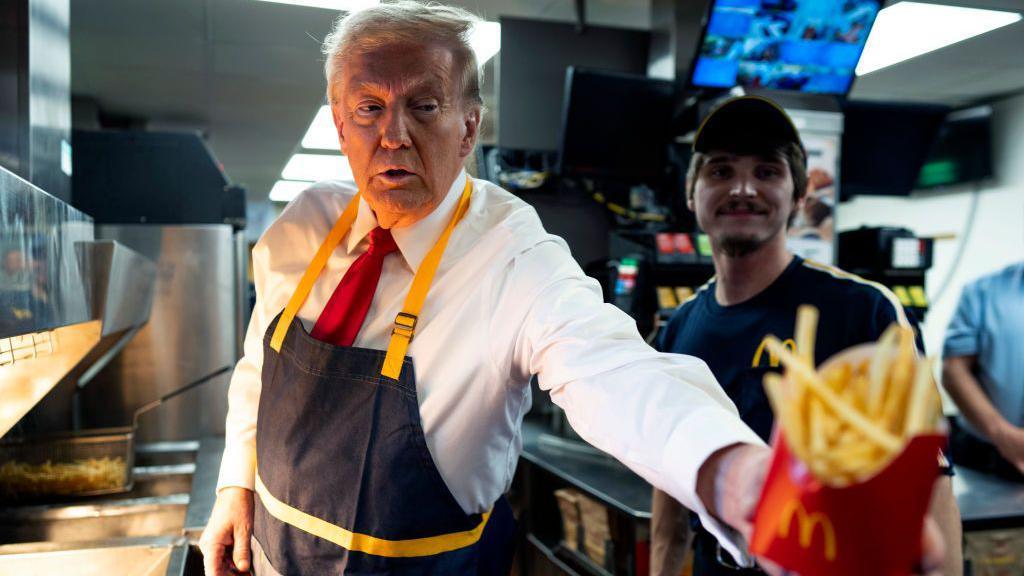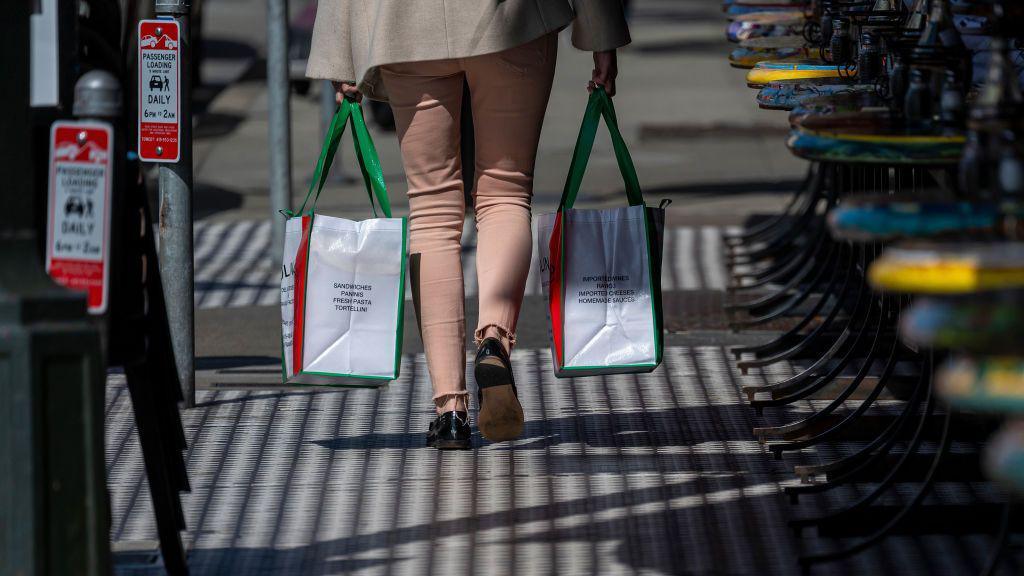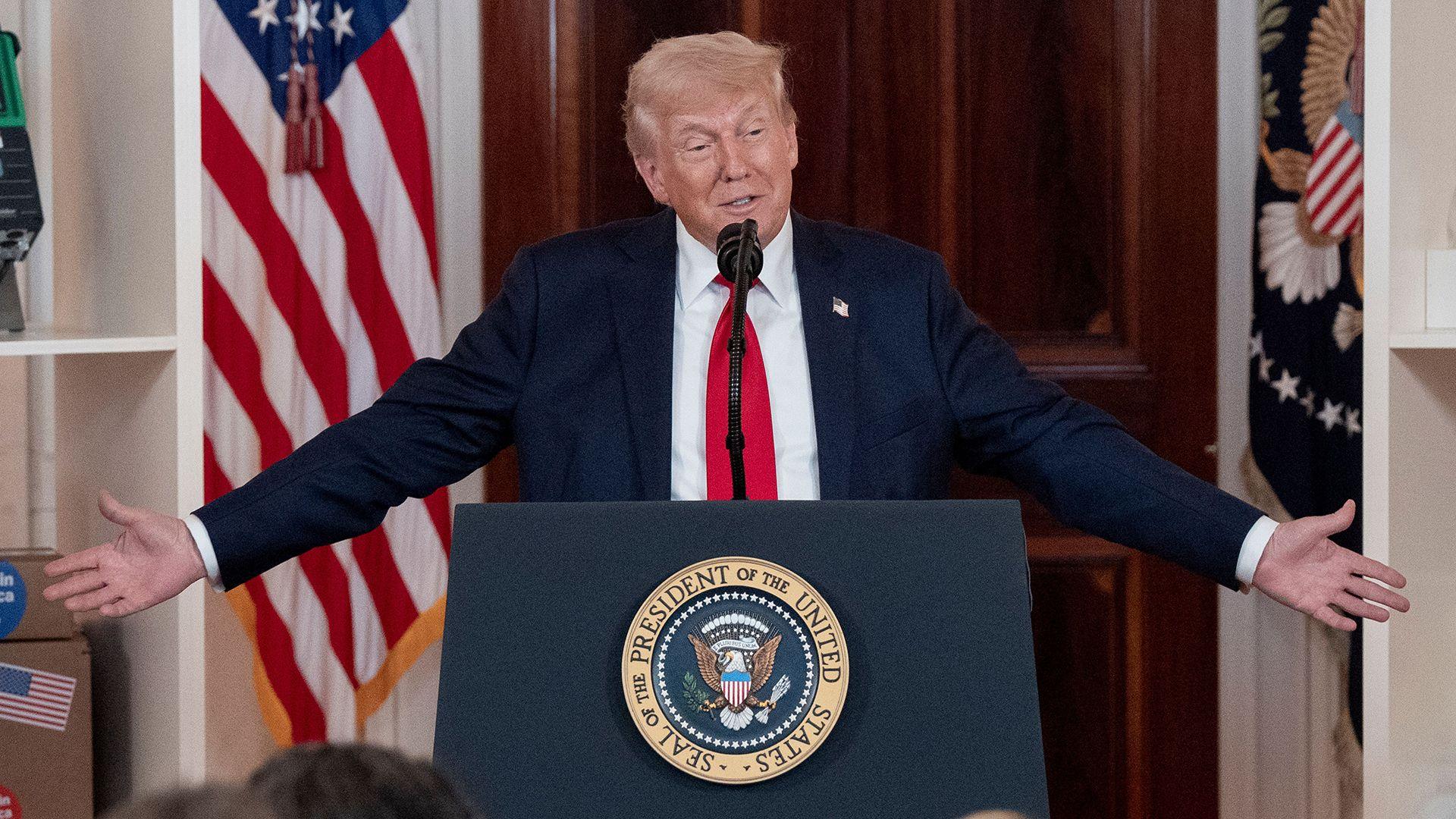McDonald's sales drop as diners face 'uncertainty'

- Published
McDonald's has suffered its biggest drop in US sales since the height of Covid, a fall that it said was driven by people's concerns over the US economy.
Despite a marketing tie-in with the Minecraft movie and extended price deals, US customers made fewer visits to the burger chain in the first three months of this year, compared to a year ago.
Chief executive Chris Kempczinski said customers were "grappling with uncertainty".
But he assured investors that the firm could "navigate even the toughest of market conditions".
McDonald's has been working for months to try to reignite enthusiasm among customers, after facing a backlash over rising prices, especially from lower income households.
However, revenue at US McDonald's outlets that have been open at least a year sank 3.6% in the first three months of 2025 compared to a year earlier.
That is the steepest decline in like-for-like sales in the US since the three months to the end of June 2020 when pandemic restrictions were in place.
The surprise drop in sales coincided with a contraction in the US economy, which shrank at an annual rate of 0.3% in the first three months of 2025, the first quarterly decline in output since 2022.
Reacting to the growth figures, President Trump called for patience, saying he needed "a little bit of time" and described the numbers as a reflection of the "Biden economy", a reference to his predecessor as president.
However, Danni Hewson, head of financial analysis at AJ Bell, said Americans were nervous and cutting back on discretionary spending as a result.
"They're worried prices will rise even higher and that household budgets, already feeling the impact of previous inflation, will be stretched beyond breaking point," she said.
"They're also nervous about the potential for job losses if the economy continues to stutter as businesses try and make sense of an evolving tariff environment."
McDonald's figures reflect the first two months of Donald Trump's presidency, with the reporting period ending just before his barrage of tariff announcements on 2 April.
Dubbed "Liberation Day", that broadside prompted further confusion among many firms and consumers.
Mr Kempczinski said: "Consumers today are grappling with uncertainty, but they can always count on McDonald's [...] for exceptional value".
"McDonald's has a 70-year legacy of innovation, leadership, and proven agility, all of which give us confidence in our ability to navigate even the toughest of market conditions and gain market share," he added.
Over the same three-month period to March, the slump in McDonald's US sales dragged its global like-for-like revenue down 1%, despite growing sales in Japan, Australia, and the Middle East.
Watch: Trump says US kids might have ‘two dolls instead of 30’ due to China tariffs
Businesses have had a mix of reactions since Trump began revealing and enforcing his plans for tariffs, which are a tax payable by a person or firm buying a good from overseas.
This week, technology giant Intel said costs would rise and a recession was more likely because of Trump's tariffs.
Sportswear brand Adidas said they would lead to higher prices in the US for popular trainers including the Gazelle and Samba.
Meanwhile, delivery giant DHL paused deliveries worth more than $800 (£603) due to US trade policy before lifting them after negotiating "adjustments" to customs rules.
Trump and his allies have said the policies will help to bring more jobs to the US as firms base factories and operations the country to avoid the new taxes.
However, many companies and economists have said this will be difficult to achieve and will likely mean job losses and economic pain at least in the short term.
Related topics
- Published30 April

- Published29 April

